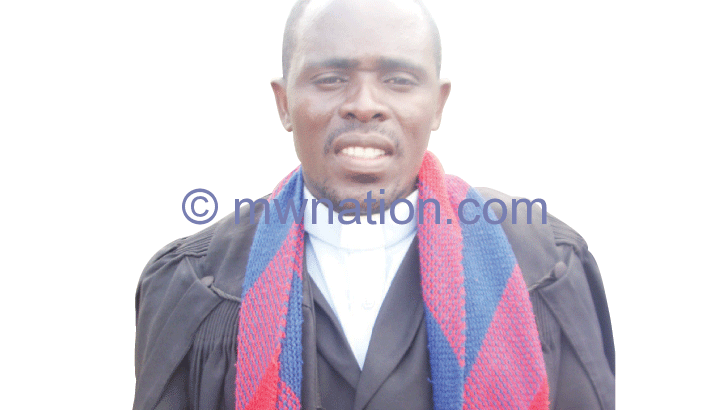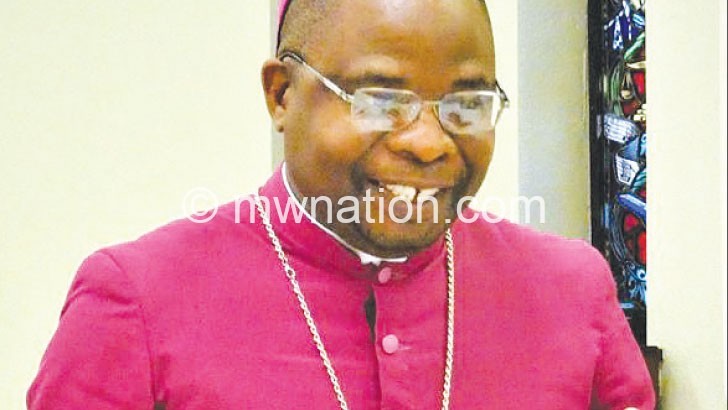Should the church prosecute own Cashgaters?
A week hardly passes these days without a certain church or religious group launching a fundraising initiative for one project or the other.
And it should be emphasised here that there is nothing wrong for churches and/or religious groups to ask their followers or the public to contribute towards the implementation of various projects, including construction of places of worship.

It is for this reason that believers, too, respond positively by giving generous contributions to such initiatives, believing the projects are designed to uplift the Kingdom of God in one way or the other.
But as Lawrence Chisambi notes, not all the resources collected in the name of church projects are used for the intended purposes.
Chisambi, a member of the Chipangano Church in Mzimba, says his experience over the past years has taught him that the majority of the modern faith leaders do not respect principles of transparency and accountability when handling church resources.
“And this has led to the squandering and plundering of financial as well as material resources by those holding positions of leadership in the church. It is very rare nowadays that projects for which funds are raised do come to fruition without cases of abuse of resources by those Christians chose to run the affairs of the church,” Chisambi observes.
He thinks that people entrusted with responsibility to run the affairs of the church are deliberately bypassing these important values because they cannot be prosecuted.
Chisambi stresses: “Churches were established to preach forgiveness of sin. It is, therefore, not strange for these leaders to believe that they won’t be prosecuted even if they stole from church coffers.”
This scenario is not necessarily unique to Malawi.
In November 2015, Pope Francis of the Catholic Church ordered what was described as an ‘unprecedented’ look into its finances and spending.
According to Bloomberg, the motive behind Francis’ order was to examine potential corruption and mismanagement of church resources.
Facing the scope of these stories, Christians can legitimately ask: “Is the church corrupt?”
According to lack of transparency and accountability or indeed corruption is not necessarily a new phenomenon in places of worship.
The site draws a reader’s attention to the church of the past, which it says was controlled by men that did not know the truth.
“When you look at all the big, expensive castles and cathedrals built in middle age Europe, you can see that the royal families and churches divided all the wealth between themselves. The people that had to build them and pay for their wealthy lifestyle lived in crushing poverty,” it states.
Adds the site: “It was like the church and royals were in a competition to see who could spend the most of the poor folks’ money. They were in a competition to see who had the biggest and most expensive buildings, and who could dress in the most gold,” explains that site.”
And because of the corruption, some churches have lost many of their followers who are in search of truth, transparency and accountability in the church, continues the site.
These disgruntled followers have often formed splinter religious groups, which, unfortunately, have not survived the test, leading to more splinter chruches.
But Andrew Kachali, a devout CCAP faithful at Kasukanthanga Congregation in Mzimba, says if this is anything to go by, Christians cannot be faulted for concluding that majority, if not all, faith elders have tended to use church resources to enrich themselves.
But Kachali blames followers for letting the vice prevail over truth, honesty, transparency and accountability in temples of worship.
He thinks it is not enough to simply depose or excommunicate corrupt leaders from the church.
“I hold the view that those plundering church finances need to be prosecuted just like those that are stealing government resources. After all, the Bible is clear. God is working through mankind. So, what can stop the Judiciary from prosecuting elders that plunder church resources?” he argues.
Reverend Bannet Magawa Zimba of Mabiri CCAP Church in Mzimba seems to disagree with this line of thinking.
Zimba believes the church would be in conflict with the teachings of Jesus Christ if it started prosecuting plunderers of its resources.
“Jesus Christ promoted forgiveness of sin irrespective of its magnitude. That’s why he challenged the Pharisees and other elders to throw the first stone at the woman caught in adultery. And as you might be aware, none threw a stone signaling that all of us have sinned in one way or the other and fall short of the glory of God,” says the pastor.
But Kachali argues that by merely forgiving; deposing and/or excommunicating crooked and corrupt leaders, the church will be setting a bad precedent.
He says forgiving ‘church Cashgaters’ would be similar to promoting and allowing sin to thrive in the world.
Chisambi agrees, saying churches need to start prosecuting those plundering resources to deter would-be offenders and prevent sin from thriving.
“The church needs to lead by example by flushing out evil in the world; and, that includes plunder of resources among faith leaders. Otherwise, where will it take the morality of advising government to stop corruption when it is failing to do so itself?” he asks. n





